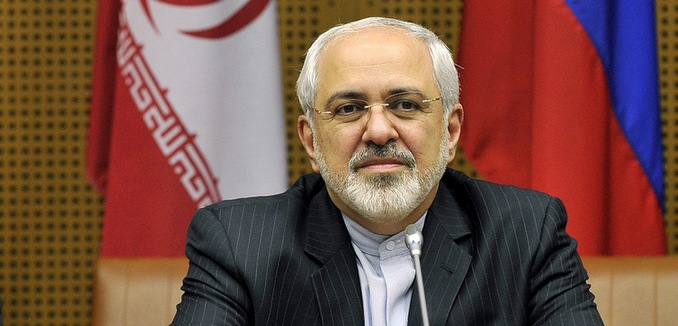The recent vote to close the International Atomic Energy Agency’s investigation into Iran’s illicit nuclear work prompted Mohammad Javad Zarif, the Islamic Republic’s chief nuclear negotiator and foreign minister, to boast that the “fabricated problem” of Iran’s military nuclear program had come to an end.
“Despite its pitfalls,” Zarif said, “the report by Mr. Amano clearly indicates that there has been no deviation from peaceful purposes in nuclear materials thus confirming that Iran has always abided by NPT [Nuclear Nonproliferation Treaty] and its program has always been peaceful.”
The relevant IAEA report, while deeply flawed, said nothing of the sort. In fact, the agency concluded that Iran had engaged in “a range of activities relevant to the development of a nuclear explosive device.” This is certainly not an indication of “peaceful purposes.” While the decision to end the IAEA probe effectively allowed Iran’s efforts to develop a nuclear bomb go unpunished, the report’s findings clearly indicate that Iran grossly violated the terms of the NPT.
Significantly, while the IAEA’s judgment only extended to Iran’s declared nuclear activities, former IAEA deputy director general Olli Heinonen argued that the agency’s findings also indicated the existence of a parallel, covert nuclear program.
Zarif’s protestations of innocence confirmed a recent prediction by Emily Landau, an arms control expert, that closing the investigation would allow Iran to “continue to spread their narrative of nuclear innocence without being firmly challenged.” His falsehoods are the latest in a pattern that belies his carefully cultivated image as a moderate.
When Zarif was first picked to serve as foreign minister by President Hassan Rouhani, he was hailed as a Western-oriented moderate on account of his American education, his many years of residence in the United States, and his urbane demeanor. However, these expectations were soon dampened after a video surfaced from his visit to Columbia University in 2006, where he was unable to answer a direct question about the Holocaust. The performance recalled not a Western-style moderate, but the radicalism of Mahmoud Ahmadinejad, the previous president of Iran who was infamous for his Holocaust denial. (Rouhani has similarly had problems acknowledging that the Holocaust happened in a straightforward fashion.)
In January 2014, shortly after the P5+1 nuclear talks with Iran commenced, Zarif paid his respects to the notorious Hezbollah terrorist Imad Mughniyeh, the man who planned the 1983 Marine barracks bombing, and who had the grisly distinction of orchestrating the deaths of more Americans than anyone else before 9/11. Zarif’s tribute to Mughniyeh was outrageous enough to prompt a protest from the White House. (Benjamin Decker recently documented Mughniyeh’s role in establishing al-Qaeda in Iraq, the terror organization which would evolve into ISIS.)
This year, when Iran seized a Marshall Islands-flagged vessel in international waters, Zarif refused to acknowledge any wrongdoing and justified the illegal seizure as a way of settling a debt owed to Tehran by the shipping company. When asked about Washington Post reporter Jason Rezaian, who was arrested in July 2014, he suggested that Rezaian was a spy. Rezaian was later convicted of espionage in October and then sentenced to a jail term of unspecified length in a widely-criticized secret trial.
Shortly after excusing his country’s piracy and casting aspersions on Rezaian, Zarif earned the scorn of human rights activists for asserting that “the Islamic Republic doesn’t imprison journalists or dissidents over their views.” In August, Zarif met with Sheikh Hassan Nasrallah, leader of the terrorist organization Hezbollah, and boasted that the nuclear deal would provide Iran and its proxy “historic opportunity” to confront Israel.
The picture that emerges from Zarif’s words and actions is not that of a Western-style liberal open to compromise, but one of a hard-line ideologue who is committed to Iran’s illicit nuclear program and support for international terror.
[Photo: Bundesministerium für Europa, Integration und Äussere / Flickr ]




